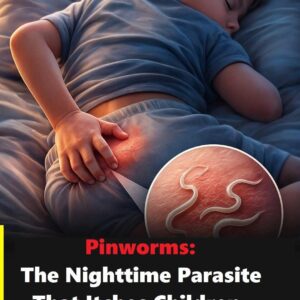The Truth Behind Body Features and Health: Myths vs. Reality
In the age of the internet, countless myths and misconceptions about the human body circulate daily. One of the most common yet scientifically questionable beliefs is that certain body features indicate hidden aspects of a person’s health, fertility, or even personality. Among these claims is the idea that a woman’s breast size correlates with specific physiological traits, including reproductive health or sexual attributes. But is there any truth to these assumptions, or is this just another baseless myth? Let’s explore the science behind this topic.
Do Larger Breasts Indicate Anything About a Woman’s Health?
Many people assume that larger breasts are linked to higher levels of estrogen, which in turn is associated with fertility and reproductive health. While there is some scientific basis to the idea that breast development is influenced by hormone levels, breast size itself is not a direct indicator of reproductive capability, vaginal health, or sexual function.
Breast size is determined by several factors, including:
- Genetics: A woman’s breast size is largely inherited from her family.
- Hormones: Estrogen and progesterone influence breast growth during puberty and pregnancy.
- Body Fat Percentage: Breasts are composed mainly of fatty tissue, so weight fluctuations can impact their size.
- Lifestyle and Nutrition: Diet and overall health can contribute to breast size, but not in ways that directly link to reproductive health.
Does Breast Size Affect Fertility?
A common misconception is that larger breasts indicate higher fertility. While estrogen does play a role in breast development, it is not the only factor affecting fertility. Women with both small and large breasts can have healthy reproductive systems. Fertility is more closely linked to:
Regular menstrual cycles
Overall hormonal balance
Reproductive organ health
Lifestyle factors such as diet, exercise, and stress levels
Studies have shown that while some men may subconsciously associate breast size with reproductive potential, this is more of a cultural and psychological bias rather than a biological fact.
What About Sexual Health and Vaginal Characteristics?
The idea that breast size correlates with vaginal health or tightness is a complete myth. Vaginal elasticity is influenced by factors such as genetics, childbirth, and muscle tone, but not breast size. Some people believe in outdated notions that link body proportions to sexual experience, but these ideas are rooted in misinformation rather than science.
The female body is complex, and every woman is unique. No single body feature can determine something as intricate as vaginal health or function. Instead, factors such as hygiene, hormonal balance, hydration, and lifestyle choices play a far more significant role.
Why Do These Myths Persist?
There are a few reasons why these myths continue to circulate:
Cultural Influence: Throughout history, different cultures have associated physical traits with fertility, sexuality, or personality traits. Many of these beliefs are outdated and not based on scientific research.
Media and Misinformation: Social media, movies, and even casual conversations can spread false information, reinforcing stereotypes.
Psychological Perception: People tend to associate physical attractiveness with desirability and other qualities, even when there is no factual basis.
Lack of Education: Many people simply do not receive proper education about human biology and sexuality, leading to the spread of myths.
What Really Matters for Women’s Health?
Rather than focusing on myths, women should prioritize the following for overall well-being:
- Balanced Diet: Proper nutrition supports hormonal balance and overall health.
- Regular Exercise: Staying active helps maintain reproductive and cardiovascular health.
- Routine Check-ups: Seeing a doctor for regular screenings ensures reproductive health is in good shape.
- Self-Care and Mental Health: Stress and mental health significantly impact physical well-being.
Conclusion: Science Over Myths
While people may believe that breast size is a secret indicator of reproductive or sexual health, there is no scientific evidence to support such claims. Women’s health is influenced by a variety of factors, and no single body part can define their overall well-being. Instead of relying on myths, it’s important to educate ourselves with accurate, science-based knowledge.
At the end of the day, every woman’s body is unique, and beauty, health, and confidence come in all shapes and sizes. Let’s focus on what truly matters—self-care, body positivity, and living a healthy life.





